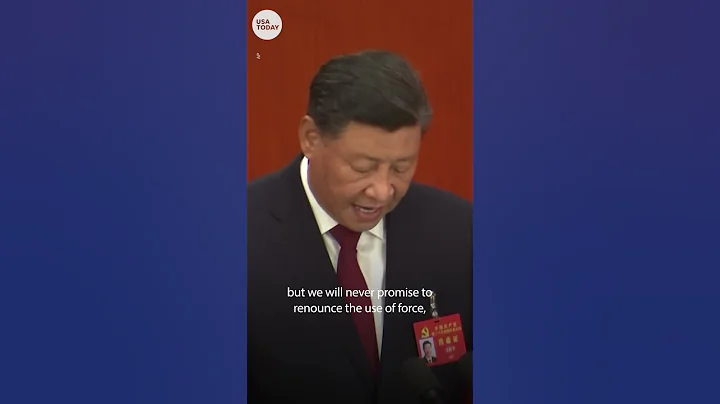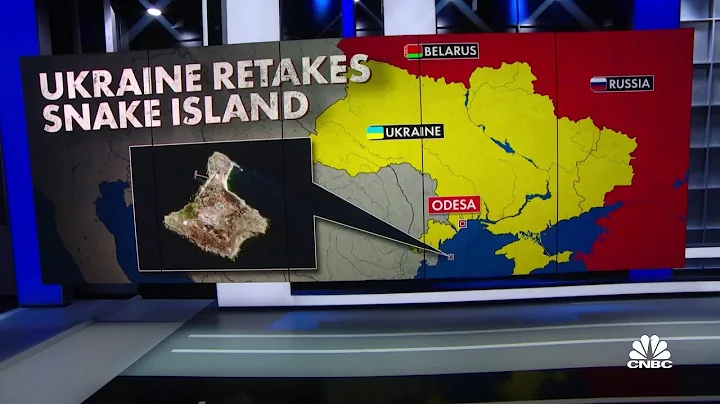
Author: Chen Qilin Source: "General Geng Biao Research Association" Originally published in "Zhuzhou Daily"
Geng Biao unfortunately passed away in Beijing at 1:06 on June 23, 2000 at the age of 91. On June 29, Geng Biao's body was cremated at the Babaoshan Revolutionary Cemetery. "People's Daily" published the news: "An outstanding member of the Communist Party of China, a proven and loyal communist fighter, a proletarian revolutionist, strategist, and diplomat, a member of the Political Bureau of the 11th Central Committee of the Communist Party of China, and a former deputy director of the State Council. Comrade Geng Biao, Prime Minister, former Standing Committee Member and Secretary-General of the Central Military Commission, former Standing Member of the Central Advisory Committee of the Communist Party of China, and Vice Chairman of the Standing Committee of the Sixth National People's Congress, was cremated today at the Babaoshan Revolutionary Cemetery. "In other words, Geng Biao was a follower. He followed the revolutionary tide of the workers' and peasants' movement of the Communist Party of China, and then followed Mao Zedong to join the Red Army. From then on, he became a general who grew up in a bloody and bloody way. After the founding of the People's Republic of China, the Chinese People's Liberation Army began to implement a military rank system. In 1955, the first ranking ceremony since the founding of the Communist Party of China was solemnly held at the State Council Auditorium west of Ziguang Pavilion in Zhongnanhai, but Geng Biao's name did not appear. So, why is Geng Biao called "General"? This has left a historical mystery to many researchers.

In 2008, I went to visit Geng Ying, the eldest daughter of General Geng Biao. I went there with the writer Shi Shangliu. It comes from the fact that Shi Shangliu and I are classmates of Beijing Normal University, our hometown is Yueyang, and we are both from Hunan. After listening to my introduction, he was full of interest in Geng Biao's fighting legend. After coming back, he was so excited to see Geng Biao's eldest daughter Geng Ying that he wrote an article and posted it on his blog that night. In the article, he wrote Geng Biao as "the founding general Geng Biao." In his opinion, Geng Biao should be the founding general who was awarded the title in 1955 due to his illustrious military exploits and serving as Minister of Defense. Unexpectedly, the next morning I received a call from the office of the China Cultural Heritage Foundation, asking him to modify the word "admiral" in the article, and told him frankly that Geng Biao was not awarded the title in 1955. He has never been awarded a military rank.
It can be seen that the title "General Geng Biao" is also widely spread among the people.
According to relevant records, after the Long March of the Red Army and the full-scale outbreak of the Anti-Japanese War, the Kuomintang and the Communist Party began to cooperate for the second time. Geng Biao stayed in Qingyang in the Shaanxi-Gansu-Ningxia Border Region and served as deputy brigade commander and chief of staff of the 385th Brigade of the 129th Division. , He left Qingyang, Gansu Province in 1941 and came to Yan'an to study at the Party School of the Central Committee of the Communist Party of China. Three years later, in September 1944, he received an official notice that Geng Biao bid farewell to Yan'an and rushed to Shanxi-Chahar-Hebei. Before leaving, Zhou Enlai gave him a task to escort an American observation team to Shanxi-Chahar-Hebei and asked him to go to Ye Jianying to pick them up. According to the "Memoirs of Geng Biao": When we arrived at Ye Jianying's station, before the translator could introduce him, a fat man from the observation team wearing a uniform and the rank of captain took a step toward me and raised his hands in a standard military salute. , in blunt Chinese: "Your Majesty General, nice to meet you." This is the first time Geng Biao's title of general appears in literature. According to relevant documents, during the period of the Red Army and the Eighth Route Army, the Chinese Communist Party’s army did not implement a military rank system. Generally speaking, they are called comrades, leaders, or military officials, such as regiment commander, division commander, army commander, etc. After the Chinese People's Liberation Army implemented the military rank system in 1955, titles such as commander, general, etc. were introduced in the army.
There was an incident that caused Geng Biao to be called "General" to all countries in the world.
In 1950, after Geng Biao and others led the "Yang Luogeng Corps" to sweep across the northwest , just after the New Year in Xi'an, he received an order from the central government to transfer him to Beijing to work in the Ministry of Foreign Affairs. New China has just been founded, and diplomatic work is very urgent. The first is the issue of United Nations . Geng Biao's earliest diplomatic position was the Chinese military representative to the United Nations, and Zhang Wentian was the chief representative attending the United Nations General Assembly.But just as they were nervously preparing, news came: China has not entered the United Nations due to unreasonable obstruction by the United States. At that time, Sweden established diplomatic relations with our country. On behalf of the central government, Zhou Enlai assigned Geng Biao the task of serving as China's ambassador to the Kingdom of Sweden and said: "You are the first ambassador sent by our country to the West." Under the leadership of Zhou Enlai, Mao Zedong made a special trip to meet with Geng Biao and others, and said, "It is good for the general to be an ambassador. The good thing is that we can rest assured when you go out, because you will not run away." As a result, during the period when Geng Biao was in Sweden, Mao Zedong He personally signed the appointment of Geng Biao as minister to the Kingdom of Denmark and the following year as minister to the Republic of Finland.
On the first National Day when Geng Biao was the ambassador to Sweden, the Chinese Embassy in Sweden held a reception for the first time. More than 500 distinguished guests came to this reception. Swedish newspapers and radio stations reported that it was a National Day reception held by the Chinese Embassy. It was an unprecedented event. Chinese diplomats showed their diplomatic talents to the public for the first time. At the reception, a Swedish officer suddenly asked Geng Biao: I heard that the ambassador is a general. I wonder how many soldiers you have led? Geng Biao replied: "About hundreds of thousands." When the officer who asked him heard this, he immediately stood up with a "la" sound, stood at attention, saluted him, and said: "The army you command is larger than the army of our entire country." There are so many." Since then, Geng Biao, the "general ambassador", has been spread throughout the world through Western media.
According to folklore, during the second cooperation between the Kuomintang and the Communist Party, the Eighteenth Group Army of the National Revolutionary Army was successively awarded one Army General, Zhu De, nine Army Lieutenant Generals, Guo Moruo, Zhou Enlai, Ye Jianying and others, and forty Army Major Generals. Geng Biao is among them as the deputy brigade commander and chief of staff of the 385th Brigade of the 129th Division. In 2010, I made a special call to Professor Geng Yan, Geng Biao’s daughter, about this matter. I asked: Teacher Geng, when General Geng Biao escorted the American observation group to Shanxi-Chahar-Hebei in 1944, was he awarded a military rank while serving in the 18th Group Army of the Kuomintang Revolutionary Army? Professor Geng Yan replied, teach him. I continued to ask, is he a major general? She said: He should be a major general. It was during the cooperation between the Kuomintang and the Communist Party...
Geng Biao was a child laborer in Shuikou Mountain, Hengyang. Under the guidance of Jiang Xianyun, Xie Huaide and his uncle Song Qiaosheng, he embarked on the road of revolution. In 1926, he was dispatched by the Shuikou Mountain Party organization and returned to Liling, China to carry out agricultural movement work. Gradually, he served as the captain of the "Libei Guerrilla".
Today, there is the "Liling South Fourth District Soviet Revolution Memorial Hall" in Dazhang Town, Liling, which was established voluntarily by the people. Because in that historical period when the revolutionary wave was surging, the area around Liling Dazhang and Hejiaqiao was the command center of the Eastern Hunan Special Committee, which organized and developed the revolutionary movement in Eastern Hunan and more than a dozen surrounding counties. On the eve of the first counter-campaign against "encirclement and suppression" in the Central Soviet Area, in accordance with Mao Zedong's instructions in Liling Zhuangyuanzhou, the Eastern Hunan Special Committee formed a force to block and delay the Hunan Army's attack on the Central Soviet Area. Named: Eastern Hunan Independent Division. However, among these more than 800 people from eastern Hunan, after the founding of New China, only Wang Zhen and a few others remained. In the Soviet Revolution Memorial Hall in Liling South District 4, the spears, darts, swords, hammers, guns, cannons, etc. used by Geng Biao and others to fight the enemies in eastern Hunan are preserved. They are used silently every day to The world shows the fighting years of Geng Biao and others. In September 1930, the Red Army led by Mao Zedong and Zhu De marched from Jiangxi to Hunan. After the second siege of Changsha failed, they came to Liling to raise military supplies and entered Liling City. Geng Biao led the guerrillas before the trickle merged into the sea. Joined the Red Army.

In 1944, before receiving the American observation group, Geng Biao may not have received a military rank, but because of his high position in the army, the American representatives mistakenly thought that he was a senior commander of the Eighth Route Army who had been awarded the rank of general. While Geng Biao was escorting the American observation group, because the Americans were disorganized and difficult to direct, Geng Biao was worried that they would not be able to pass through enemy-occupied areas and was a little angry."Geng Biao's Memoirs" records: Captain Demuke came to me cautiously and asked: "Your Excellency, General..." I was on fire when I said: "Your Excellency, General, stop shouting!" It can be seen from this point that, Geng Biao himself didn't care whether he was called general or not.
Not only Geng Biao, but also in movies, TV, and historical records that we can read, we can’t see more details about the fact that he was awarded a military rank by Chiang Kai-shek during the 18th Group Army of the National Revolutionary Army. records. In 2006, with the support and arrangement of Zhang Guohao, the former deputy mayor of the Zhuzhou Municipal People's Government, I made a special trip to Chaling for research. Under the arrangement of the Chaling County Party Committee Propaganda Department, we visited the well-renovated "Chaling County Workers, Peasants and Soldiers Government". The commentator told me that during the Eighteenth Group Army of the National Revolutionary Army, there was a general from Chaling who was awarded the rank of major general by Chiang Kai-shek. He was still awarded the rank of major general at the founding of the country in 1955, but he would not wear this major general uniform throughout his life, even when he was buried. military uniform. Judging from these things, during the cooperation between the Kuomintang and the Communist Party, about fifty people in the Eighth Route Army were awarded the rank of general. This is true. Whether Geng Biao is among them remains to be verified.
Geng Biao’s daughter, Professor Geng Yan, answered me on the phone that in 1946, after the victory of the Anti-Japanese War, Geng Biao was appointed Peking Military Coordination Executive Department Deputy Chief of Staff of the CCP Delegation. During this period, Geng Biao was specially awarded the rank of major general. According to the "Memoirs of Geng Biao": Our army cadres do not have military ranks. Because they have to participate in the work of the Military Adjustment Department, the Central Military Commission specially appointed a group of comrades as generals.
However, the real name of Geng Biao as a general has little to do with the rank of major general he was awarded during the cooperation between the Kuomintang and the Communist Party. It mainly comes from his illustrious military exploits and his role as "general ambassador" in Sweden and other countries. Those magical experiences.
If you think the article is good, please like it!
Follow us, follow "Red IP", and read more real red stories!
[Author: Chen Qilin Source: "General Geng Biao Research Association" originally published in "Zhuzhou Daily"]





















